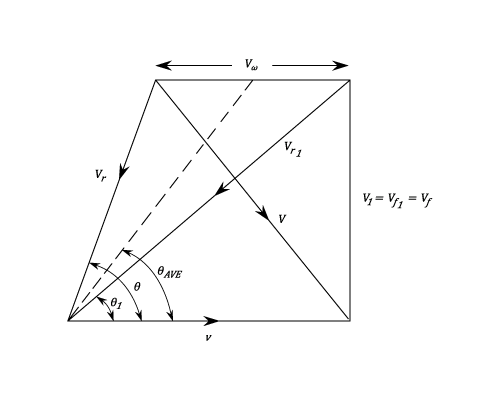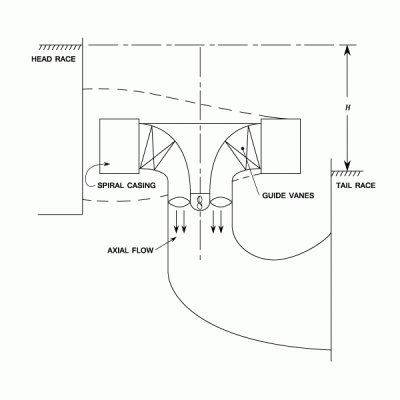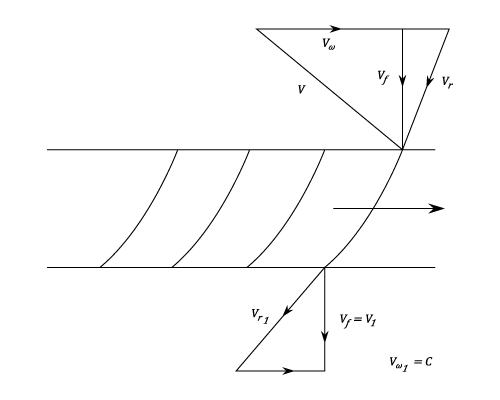Axial Flow Turbines
An analysis of Axial Flow Turbines using both the Euler and Aerofoil Theories
Introduction
Almost all electrical power on Earth is produced with a turbine of some type. Very high efficiency steam turbines harness about 40% of the thermal energy, with the rest exhausted as waste heat. Most jet engines rely on turbines to supply mechanical work from their working fluid and fuel as do all nuclear ships and power plants.Axial Turbine
- An axial turbine operates in the reverse of an axial compressor. A set of static guide vanes or nozzle vanes accelerates and adds swirl to the fluid and directs it to the next row of turbine blades mounted on a turbine rotor.
A turbine is a rotary engine that extracts energy from a fluid flow and converts it into useful work.
The Euler Theory
Leonhard Euler (15 April 1707 - 18 September 1783) was a pioneering Swiss mathematician and physicist. He made important discoveries in fields as diverse as infinitesimal calculus and graph theory.
Work done by the water on the Vanes per lb.  ( It is assumed that there is no whirl at exit).
( It is assumed that there is no whirl at exit).
Applying Bernoulli's equation across the Vanes and assuming no losses:

 But since:
But since:

 Hydraulic
Hydraulic 
The Aerofoil Theory Used For Turbines
Combining the Velocity Triangles:

Consider the Vanes as Aerofoils in a fluid stream of Velocity  in a direction
in a direction  .
For an elemental thickness
.
For an elemental thickness  at a radius
at a radius  .
.
Lift
 Drag
Drag 
 (where
(where  Chord)
Chord)
The vector sum of and
and  is the resultant force
is the resultant force  on the Vane element.
on the Vane element.
The components of in the tangential Direction is given by:
in the tangential Direction is given by:
 And the Axial component is :
And the Axial component is :
 For
For  Vanes:
Vanes:
The Total Tangential Force =
The Torque
The Horse Power output Total Axial Force
Total Axial Force  The Thrust on the Bearings.
The Thrust on the Bearings.
Lift
The vector sum of
The components of
The Total Tangential Force =
The Torque
The Horse Power output
 Login
Login



